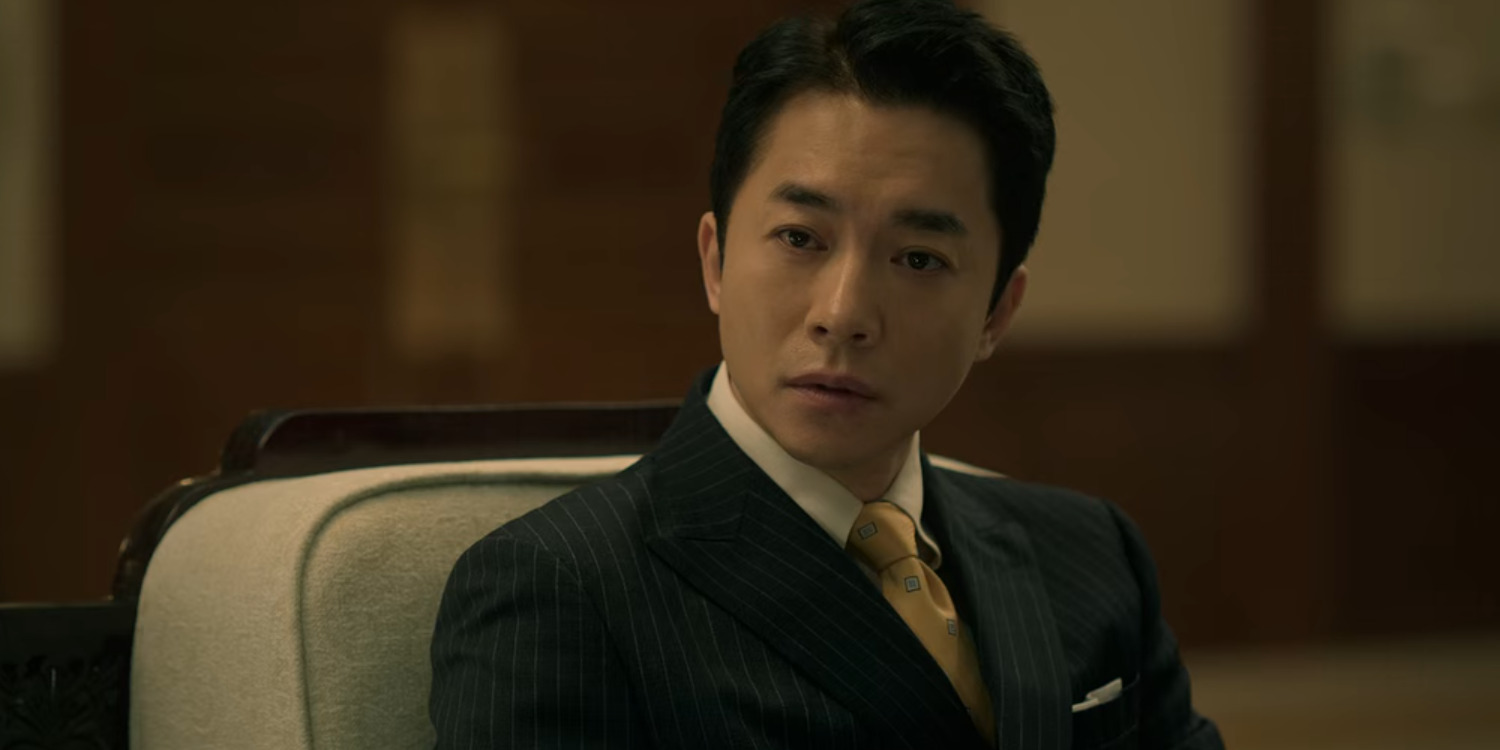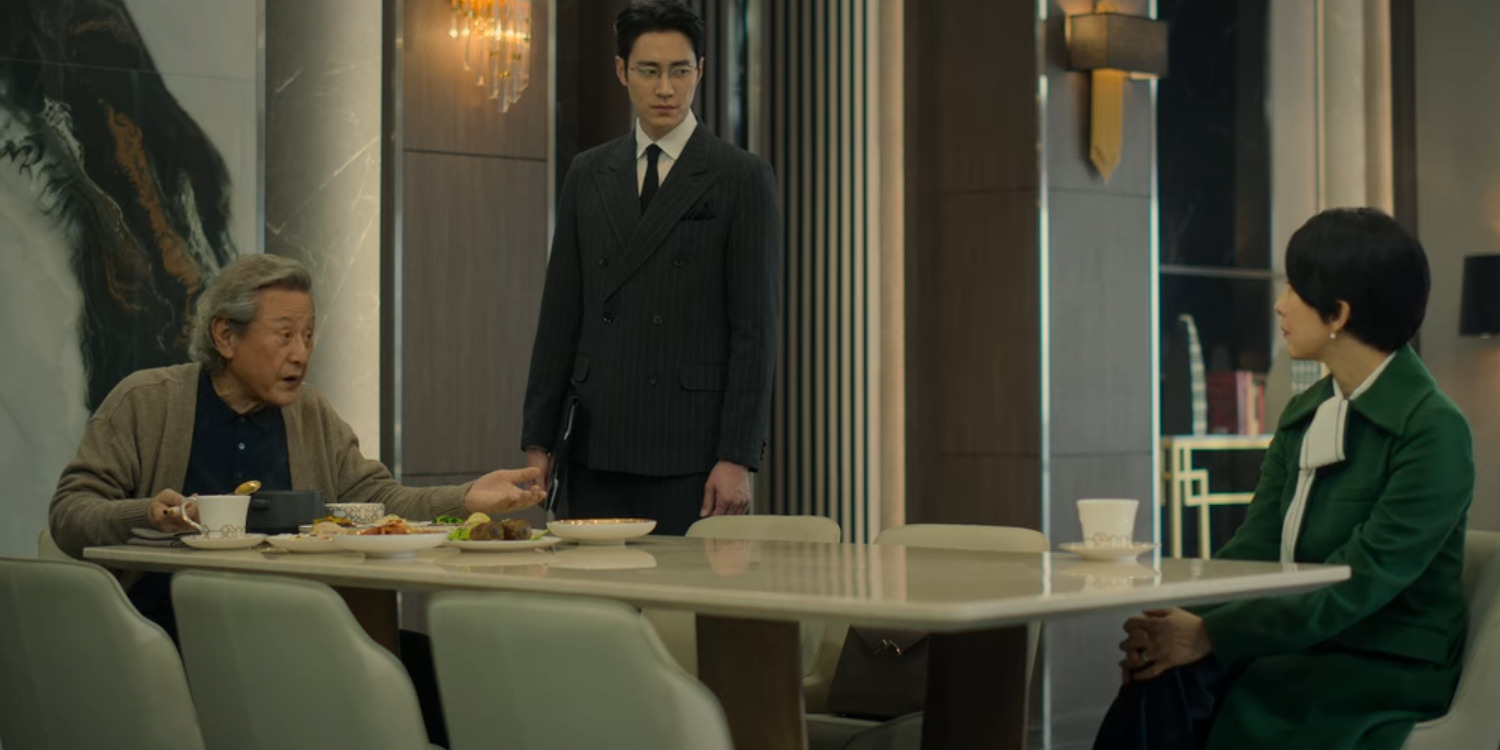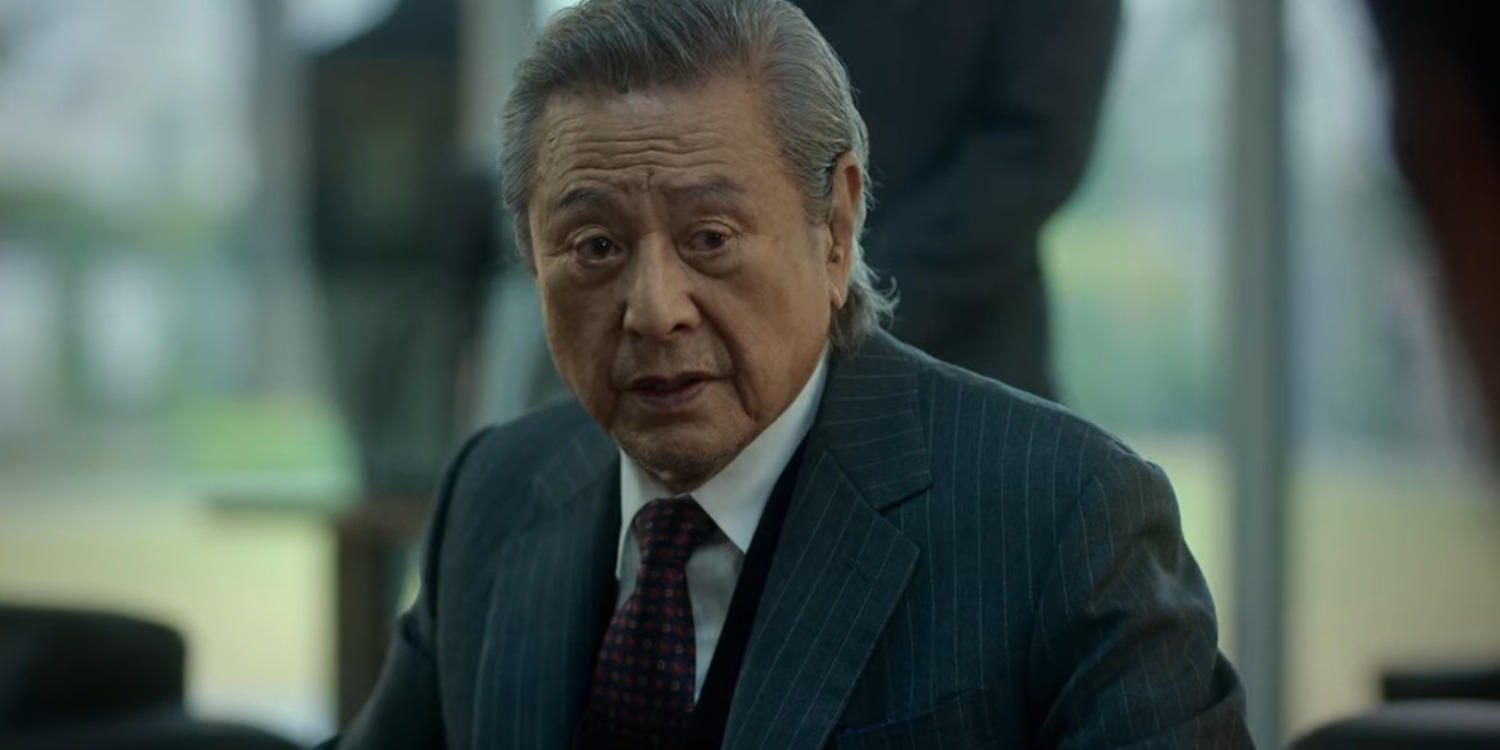As a presidential assassination kicks off the plot of the Netflix K-drama, ‘The Whirlwind,’ viewers find themselves in for a ride as the protagonist embarks on an ends-justify-the-means journey of righting past wrongs. Prime Minister Park Dong-ho poisons his mentor, President Jang Il-jun, as he discovers the latter’s corrupt practices. In the wake of Il-jun’s recent departure from the Blue House, Dong-ho carries out a campaign against governmental corruption. Naturally, Dong-ho crosses paths with more foes than friends in this undertaking, constantly entering secretive political battles.
Thus, politicians like Jeong Su-jin and Jo Sang-Cheon remain some of Dong-ho’s significant adversaries. Even so, a non-political player emerges as a key blunder in his path in the form of Chaebol Chairman Kang and his company, The Daejin Group.
Daejin Group’s Chairman Kang: A Fictionalized Chaebol
Despite the socio-political nature of the narrative explored within ‘The Whirlwind,’ the story doesn’t mine any firm inspirations from reality outside of its depiction of certain themes. Therefore, the characters and institutions— from politicians and prosecutors to business conglomerates— reflect the show’s fictionalized confinements. For the same reason, neither Chairman Kang nor his wealthy company, The Daejin Group, have real-life counterparts in actual chaebols. Instead, they’re installments in a long line of fictional Chaebols created within a K-drama in service of their specific show’s plot.

In the show, Chairman Kang and his Daejin Company remain instrumental antagonistic elements standing in the way of Dong-ho’s warpath. During Il-jun’s presidency, the Daejin Group exploited the government’s favor in exchange for funds to grow their business and increase their influence in powerful circles. The corrupt symbiotic relationship between the government and the Chaebol family resulted in their personal benefits, all the while frauding the public, who championed Il-jun as a just President who stood against corruption. Thus, the Park family and their company’s role in the show highlight Il-jun’s immorality, presenting the protagonist with a daunting opponent.
Daejin Group Highlights a Realistic Aspect of Chaebol Companies
Even though ‘The Whirlwind’ pens a fictional story, it retains a connection with the reality of South Korea’s political landscape, utilizing it as a touchstone to ensure authenticity within its narrative. Notably, the show emerges from its director, Kim Yong-wan’s frustration with reality, as he perceived the current socio-political climate to be stifling. For the same reason, while Dong-ho’s self-righteous venture is a fantasy, the corruption surrounding the character’s storyline remains reminiscent of reality.

Consequently, the Daejin Group— the only Chaebol company significantly featured in the show— and Chairman Park’s plotline presents the show’s perception of the reality of such expansive business conglomerates and their role in South Korean politics. Chaebol companies have long-held connections to the political world in South Korea. Notably, the connection between the government and business companies grew stronger under Park Chung-hee’s presidency. Reportedly, the government collaborated with companies and businesses during that time in mutually beneficial agreements.
Although the same came to a considerable halt with Chung-hee’s assassination in 1979, the country saw another scandal between a Chaebol company and the government in 2017. Park Geun-hye, the country’s then-president, was removed from her position due to corruption charges. As per The New York Times, the politician faced allegations of conspiracy to collect bribes from companies like Samsung, one of the most well-known Chaebols in the country. Even though such political scandals have decreased in the past few years, Chaebols continue to be attached to political circles. For instance, in 2023, when the current President, Yoon Suk Yeol, traveled to Europe for the World Expo, he was accompanied by conglomerates like Samsung, SK, and Hyundai.
Thus, in the show’s exploration of governmental corruption, the addition of a Chaebol company remained an inevitability in regard to ensuring the story’s authenticity. As such, despite lacking a basis in any specific companies, the Daejin Group— and by association, Chairman Park— manages to reflect a crucial aspect of reality. In the end, the same allows these narrative elements to increase the story’s connections to real life. Nonetheless, The Daejin Group and Chairman Park remain confined to the show’s fabricated roots, devoid of a tangible, non-fictional counterpart.
Read More: The Whirlwind Ending, Explained


You must be logged in to post a comment.